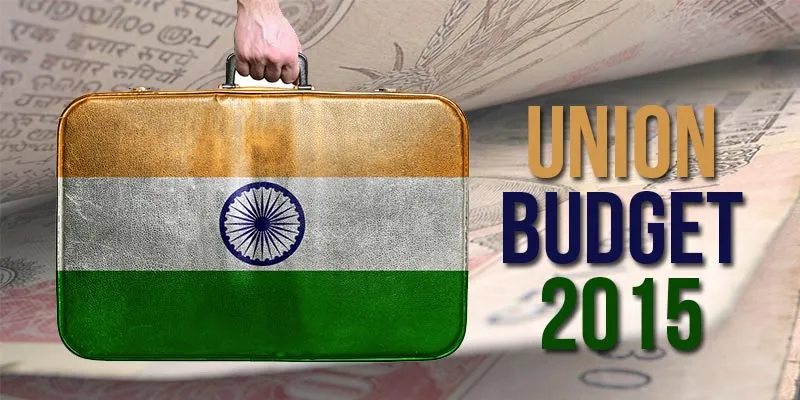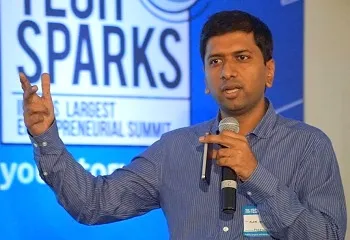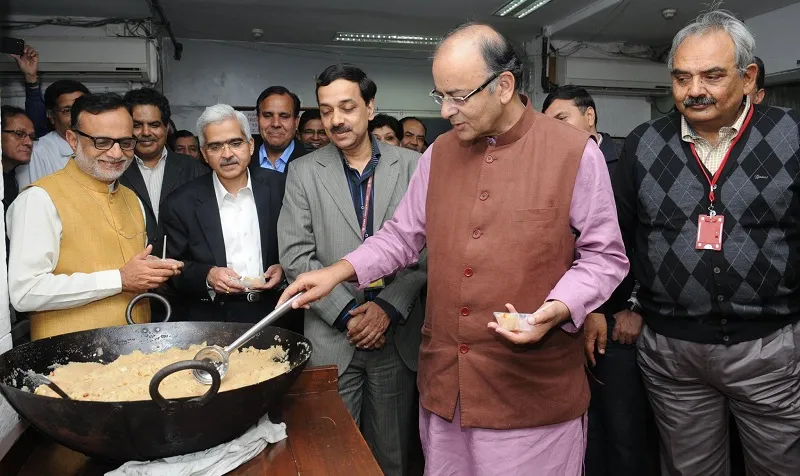What will Union Budget 2015 bring to Indian startup ecosystem
When Union Finance Minister Arun Jaitley walks with his briefcase to the Parliament tomorrow, he’ll be carrying more than just the documents of the eagerly-awaited Budget. In his briefcase will be many hopes and expectations of the common man as much as the businessman – concerns regarding subsidies, tax relaxations, new schemes and policies regarding food security to employment generation and more.
With the emergence of startups in the last few years, the government is recognizing the role of small businesses in the growth of Indian economy and the future of the country.
Last year, when Jaitley announced Rs 10,000 crore startup fund it infused unprecedented optimism in the ecosystem. But eight months down the line, the question: ‘Where is Rs 10000 Cr?’ still haunts.
In the last few weeks, we got in touch with entrepreneurs, government officials and bureaucrats to get the pulse of the expectations from the Union Budget and the progress of the startup fund. Interestingly, there are many open ended loops which will be closed today, whether it’s Rs 2000 cr allotment by RBI for startups, or the single window clearances or relaxation on angel tax for investors.

Here’s an overview of this startup-government relationship.
The promised crores and the RBI
In my expedition to find out the details of the Rs 2000 Cr allotted by RBI for startups, I went to the RBI headquarters(Mumbai) Consumer Education and Protection Department which in turn referred me to the banking regulations department. Unfortunately, even before I could meet anyone there, I was requested to meet the official handling the ‘Depositor Education and Awareness Fund scheme’. Unfortunately, the office was in a meeting and the clock ticked away to 5:30 pm. When I’d accepted that’s all I’m going to know about the RBI allotment, I met a senior official from SIDBI who confirmed the Rs 2000 Cr allotment by RBI which would be hopefully routed via SIDBI. This will be done over a period of three years and the money will be sourced from the fund at SIDBI.
At a recent event in Mumbai, Arvind Gupta, Innovation Evangelist, Information & Technology Head of BJP, indicated that the Rs 10000 Cr startup fund will be allocated in this Budget. He reiterated the government’s stand of seeking advice to put the fund to best use. The Union Minister of Skill Development and Entrepreneurship, Rajiv Pratap Rudy, had earlier said that his ministry is keen to explore ways in which the government can support the startups and SMEs, but it is still trying to figure out the source of funds and the effective way to disburse/allocate it.
Issues expected to be addressed
Throughout the spectrum of different sectors, there were certain common issues which were pointed out by entrepreneurs we spoke to. Here’s what they think needs immediate attention:

- Low ranking in the list of countries w.r.t. ‘Ease of doing business’: Alok Goel, CEO of Freecharge, believes that this is a well proven indicator that predicts how the country will grow in the near and long term. Unfortunately, India still doesn't figure high on that list whereas countries like Singapore and the US are. That is one of the main reasons why many companies are incorporating in those countries.
- Real Estate sector woes: Sumit Jain, CEO of CommonFloor, pointed out that there’s no clarity on Real Estate Regulatory Bill. Neither do we have any apex body for addressing the concerns of the sector nor has the real estate sector been assigned an industry status.
- Taxation: Nithin Kamath, Founder and CEO of Zerodha, feels that the Company Act 2013 is quite complex, and something has to be done to simplify that for startups. Direct tax code and GST has been getting postponed for ever now, about time the government put the pedal to the metal.
- Single window clearance: Registering a company is still not an easy process in India and there’s scope for betterment. There’s a need to make it simple and easy to understand process which hopefully should be entirely online. Bhupendra Khanal, CEO of Simplify360, believes that the company registration process should be brought down to a single day similar to that in Singapore or Saudi Arabia.
- 10000 Cr startup fund: When was the last time so many entrepreneurs grew curious about the same announcement? With lack of clarity in issue and the extended deadlines, the desperation is growing and the faith is reducing which makes it one of the most important issues to be addressed tomorrow.
The budget of expectations
Based on the hopes of entrepreneurs for the upcoming Union Budget, it can be called a budget of expectations. The wishlist is endless and we could capture only this much:
- The startup tax

Goel says, “Easing out how ESOPs are taxed (at the time of exercise and not at the time of cash realization) can be a major policy which can boost number of people opting in for startup opportunities.”
Khanal wishes that the government will provide three to five years of tax break for startups of first time entrepreneurs. Shivakumar Ganesan, CEO of Exotel, is keen to see a standard deduction on all registrations, compliance and remittances until they reach Rs.10 lakhs in revenue which will help startups immensely.
As the Founder of a brokerage firm, Kamath expects the long standing request to remove STT (Securities Transaction Tax) and CTT (Commodity Transaction Tax) will be taken care of in this Budget.

- Education sector reforms: Sameer Bora, EVP Research & Development of Next Education India, expects the new government to make sizable allocations towards facilitation of digitization in the education sector. This will ensure access to quality education in every nook and corner of the country. He says,
Refurbishment of existing facilities, major fund infusion in rural India and introduction of regulatory reforms specially devised to increase the gross enrollment ratio are other areas that demand attention. Tax breaks and lower borrowing costs for companies and vendors involved in school education will allow more participation from the private sector.
Kamath wishes that the financial literacy be made mandatory in higher secondary school, which will lay the foundation of a sound capital markets in the future.
- Exemption for Angel Investments: V Shankar, Member of The Chennai Angels says,
“Section 56(2)(viib) of IT Act {introduced by Finance Act 2012 w.e.f 01-04-2013} provides that where a closely held company issues shares to a resident, for an amount received in excess of the fair market value of the shares, then the said excess portion will be regarded as income of the company and charged to tax under the head ‘Income from other sources’. This provision will inevitably cause problems for startups, particularly IP based ones, as their FMV will always be open to debate by the IT Department at the Angel.”
Goel added that we can encourage venture money creation within India as most of the VC money is currently routed through Mauritius.
- Special attention to women entrepreneurs: Geetha Kannan, Managing Director, Anita Borg Institute
- (ABI) India, wants the government to create specific platforms for recognizing women leaders from various industries and build more role models for young girls to draw inspiration from. She says,
We would like to call out attention to women entrepreneurs, who have the potential to make significant contributions to technology innovation and economic growth if they get the required support from our government in the form of training programs, easy financing and market access.
- Real Estate - REIT and affordable home buying: Jain recalls that Finance Ministry floated a draft cabinet note to amend the Foreign Exchange Management Act (FEMA) to permit overseas funds in real estate investment trusts (REITs). He believes that it will need further clarity and further easing of REITs norms so as to make it investor- friendly. Ganesh Vasudevan, CEO of IndiaProperty.com, says,
The Budget is likely to bring in some incentives for the first time home buyers and the affordable home buyers such as tax rebates and decreased home loan rate. An increase in tax savings under 80C from the current INR 1.5 lakhs and home loan exemption rate from the current INR 2 lakhs would increase the buying capacity of home buyers and thereby help recover the realty industry.
- Indian IP protection: Ganesan is looking forward to some friendly policies for technology startups like setting up a trust or fund to fight and protect the Intellectual Property (IP). He says,
Fighting an IP battle can be a daunting task for startups and is also an expensive ordeal.
Union Budget – things you should know

The Union Budget of India, referred to as the Annual Financial Statement in Article 112 of the Constitution of India, is presented each year on the last working day of February by the Union Finance Minister in Parliament. The printing of Budget documents starts roughly a week ahead of presenting in the Parliament with a customary 'Halwa ceremony' in which a sweet dish (halwa) is served to officers and support staff. They remain isolated and stay in the North Bock office until the Budget is presented.
Until 2000, the Union Budget was announced at 5:00 pm which was then changed to 11 am by the then finance minister. So, stay tuned tomorrow on twitter as we’ll be sharing live updates of the Budget with you.








![[Funding alert] Femtech startup Say Cheese raises seed round at Rs 10 Cr valuation](https://images.yourstory.com/cs/2/b87effd06a6611e9ad333f8a4777438f/Imageq5t5-1615799062761.jpg)



